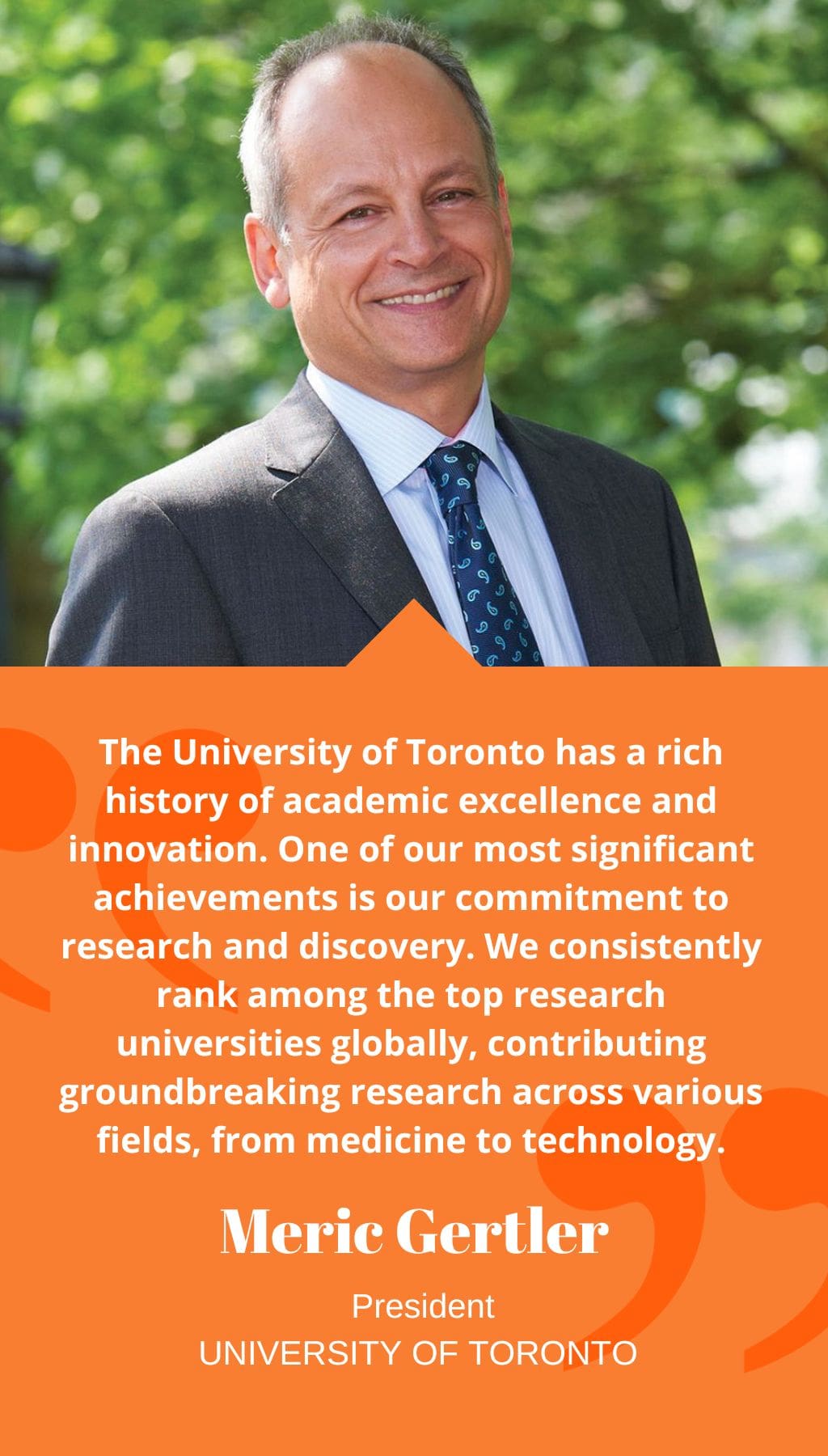
- Canada | 18 February 2023

To start, could you tell us about the achievements and contributions of the University of Toronto to the Canadian education system?
Certainly. The University of Toronto has a rich history of academic excellence and innovation. One of our most significant achievements is our commitment to research and discovery. We consistently rank among the top research universities globally, contributing groundbreaking research across various fields, from medicine to technology.
Our diverse and inclusive campus community fosters global perspectives and intercultural exchange. We take pride in our role as a leader in fostering diversity and inclusion in Canadian higher education.
Additionally, we’ve played a crucial role in nurturing Canadian talent. Many of our graduates have gone on to become leaders in their respective fields, both nationally and internationally. Our alumni network is a testament to the quality of education and the impact of the University of Toronto.
That’s impressive. Looking forward, what are your goals and ambitions for the University of Toronto in the coming years?
Our goals for the future are deeply rooted in our commitment to excellence and societal impact. First and foremost, we aim to continue our leadership in research and innovation. We’re investing in cutting-edge facilities and recruiting world-class faculty to maintain our status as a research powerhouse.
Equally important is our dedication to accessibility and inclusion. We’re working on initiatives to ensure that education at the University of Toronto remains accessible to all, regardless of their background or circumstances. This includes expanding scholarship opportunities and supporting underrepresented groups in higher education.
We’re also exploring ways to adapt to the evolving landscape of education. The pandemic has accelerated digital learning, and we want to harness technology to enhance the educational experience for our students while preserving the value of in-person learning.
Lastly, we’re looking to strengthen our international partnerships and collaborations. Globalization is changing the face of education, and we want our students to benefit from a truly global education.
Those are ambitious goals, indeed. Can you elaborate on how the University of Toronto plans to address the challenges posed by the changing landscape of education?
Absolutely. One of the key challenges is ensuring that we remain at the forefront of pedagogical innovation. We’re investing in digital infrastructure and resources to offer a seamless blend of online and in-person education. This approach will not only provide flexibility but also enrich the learning experience.
Furthermore, we’re placing a strong emphasis on student support services. Mental health and well-being are paramount, especially in today’s world. We’re expanding our counseling and support services to ensure that our students have access to the help they need.
Additionally, we’re actively engaging with employers and industry partners to align our programs with the evolving needs of the job market. We want our graduates to be well-prepared for the workforce and equipped with the skills and knowledge demanded by employers.
It’s clear that the University of Toronto is adapting to the changing times. Can you share any final thoughts on the future of Canadian education and the role of your institution?
Certainly. The future of Canadian education is bright, but it requires adaptability and innovation. Our institution is committed to leading the way in shaping that future. We believe that by staying true to our core values of excellence, diversity, and inclusion, we can continue to provide a world-class education and contribute positively to Canada’s growth and prosperity.














